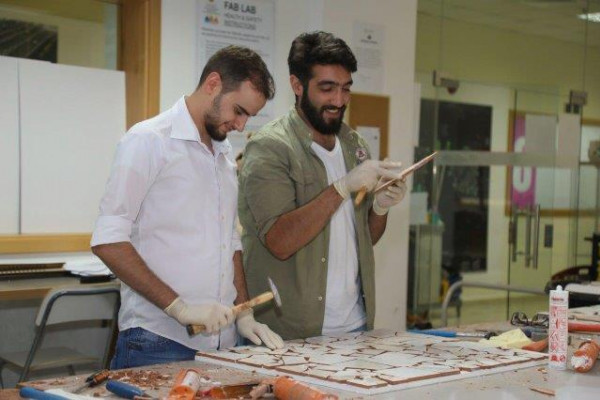Ajman University Offers Bachelor of Civil Engineering

Effective this academic year 2019-2020, Ajman University (AU) is to start its accredited Bachelor of Civil Engineering (BCE) program.
The program, approved by the Commission for Academic Accreditation (CAA), will be an added value to the growing list of bachelor degrees being offered by the College of Engineering and Information Technology.
These span Electrical Engineering, Computer Engineering, Biomedical Engineering, Information Systems and Information Technology, according to AU Chancellor Dr. Karim Seghir, Ph.D.
“The nascent program reflects the University passion to lift up the bar and keep pace with the requirements of the local, regional and international labor market in all engineering fields.”
The program is to enrich the job market with highly qualified graduates in different civil engineering sectors, he added.
“These cover all phases of project planning, designing, preparation, and implementation, let alone full ability to supervise any project from the very beginning to completion.”
Registration in AU Bachelor of Civil Engineering program is “currently open”, while the program is slated to kick off in the “first semester of the academic year 2019-2020,” Dr Karim disclosed.
“Holders of this degree will get lucrative jobs with big consulting engineering and construction companies, and many government entities,” he underlined. “They can also pursue their graduate studies to develop their abilities and expertise.”
Dean of the College of Engineering and Information Technology Prof. Fahr Hayati said the program consists of 141 credit hours. “It is part of the College strategy to introduce new programs that cope with the market’s needs in the era of the Fourth Industrial Revolution, Information technology and digital economy.”
Hopeful BCE graduates will be qualified to design and carry out projects in four major areas of civil engineering; structural engineering, transport engineering, roads and traffic, soil and foundations engineering, and water and environment engineering, he explained.
“Graduates can perfectly design and implement a variety of infrastructure projects, including roads, bridges, ports, airports, water networks, sewage networks, let alone mechanical and industrial facilities.”
These are added to full competence to design and carry out different construction projects, he said. “These span residential buildings, schools, universities and hospitals, along with surveying work, quantity calculation, and development of specifications.”
